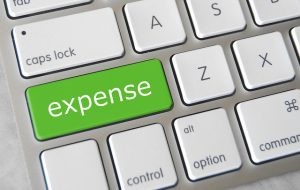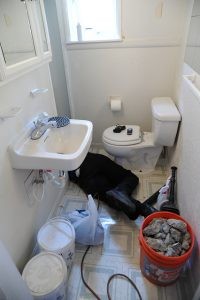Any seasoned homeowner is well aware that there can be steep expenses associated with homeownership. It’s no different when it comes to a rental property. In fact, expenses associated with a rental property tend to be even higher and your tenants will expect a speedy resolution to the issue, so money needs to be readily available. It’s important to carefully think through all of the possible expenses associated with a rental property to ensure you’re not left in a bind when they arise. This article provides an outline of expenses that you’ll need to take into consideration before you decide if becoming a landlord will be a profitable venture for you.

Mortgage
For most people, mortgage repayments are the biggest and most obvious expense associated with homeownership. Keep in mind that your repayments can fluctuate if there is an interest rate change. The best way to understand how an interest rate change could affect your repayments is to play around with a mortgage calculator. Interest.co.nz provides an easy-to-use mortgage calculator on their website.
Rates and water
At the beginning of each year, you’ll need to pay rates to your local authority to cover the costs associated with local services, such as recycling, street cleaning, rubbish collection, etc. Depending on where you live, water may or may not be included in your rates. Rates are based on the rateable value of your property, so they can fluctuate from year to year. The average family in NZ pays rates between $1,000 – $2,000 per year for their home. We recommend finding out exactly how much you will owe for the first year and then adding a 10% margin to accommodate for fluctuations in subsequent years.
Insurance
Like any other homeowner, landlords need to have property insurance to cover damage to their property. As a landlord, you need to ensure that your policy covers issues related to the tenancy – not all policies are designed to protect landlords. It’s also a good idea to purchase more extensive coverage to protect yourself during periods of vacancy or when a tenant fails to pay their rent. Your local insurance provider can provide quotes for landlord insurance.
Maintenance and repairs
You should expect to have maintenance expenses throughout the year. Common expenses include painting walls inside or outside the home, annual landscaping costs and making repairs when something breaks. Your expenses can vary dramatically from year to year and may be higher or lower than average based on the condition and size of your home. As a rule of thumb, plan for yearly expenses of at least 0.3 – 0.5% of the value of the property. We strongly recommend that you put aside anything you do not spend in one year – having healthy savings available for home expenses will protect you in years to come.

Appliances and furnishings
By law, landlords are required to provide a way for tenants to cook food by baking and boiling. In most homes, this means an oven and stovetop. You must also provide a way of heating the main living area. You do not have to provide a refrigerator or washing machine, but many landlords choose to offer these to make the property more appealing. If you decide to let your property fully furnished, you may need to replace furnishings at the end of a tenancy. You’ll also need to replace curtains and carpeting when they begin to show signs of wear. Any furnishings that are provided in the home as part of the rental agreement will need to be replaced in event of breakdown, so keep this in mind when preparing your annual budget.
Empty periods
While the ideal scenario is that your property is rented out 100% of the year, the reality is that you may be face periods of vacancy that can last weeks or months. You’ll have to continue making mortgage repayments even if the rent isn’t coming in, so be sure to have a few months of mortgage payments saved to cover yourself. Another option is to purchase landlord insurance to cover periods of vacancies.
Property management fees
If you decide to work with a property manager, you will need to pay their fees during the year too. While this is an added expense, it is usually well worth it. Working with a property manager ensures fewer vacancy periods and increases the likelihood of finding good tenants who will pay their rent on time and treat your home with respect. Before deciding to manage the property yourself, we encourage you to learn more about the benefits of working with a property manager.
Bottom line
When considering whether it makes financial sense for you to rent out a property, be sure to think about all the expenses listed above. A good rule of thumb is to add an additional 25% onto your mortgage repayment to cover the items listed above. This is a rough figure, but it will give you an initial idea of what it will cost to rent your property. For more information and guidance, we welcome you to get in touch with one of our experience property managers. Our team can provide additional information and help you decide whether becoming a landlord is the right decision for you.
Photos
George the plumber by Wonderland, CC BY 2.0
Expense Key by GotCredit, CC BY 2.0

